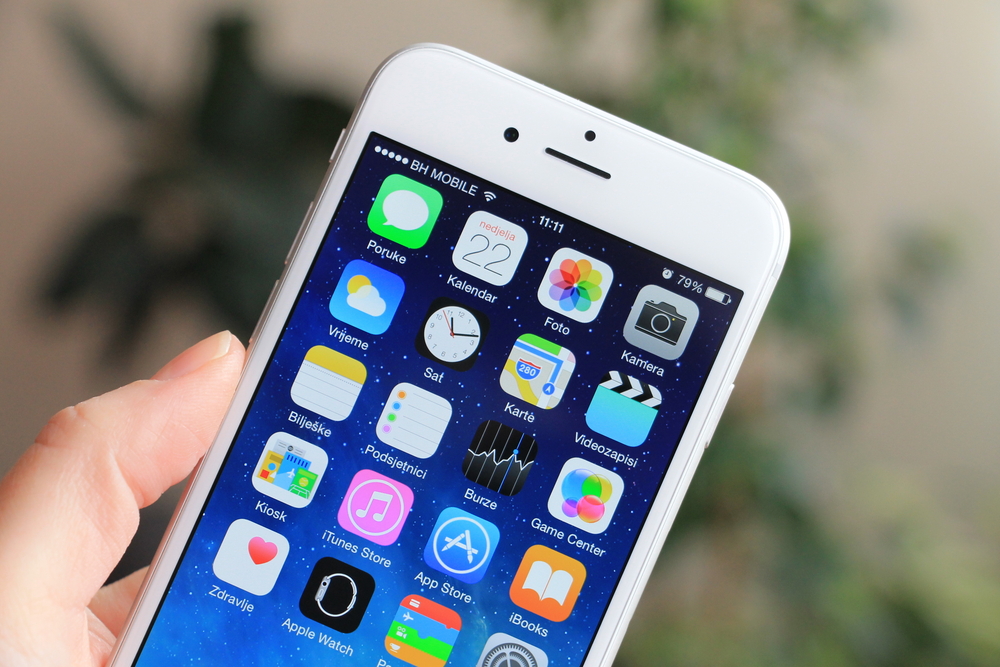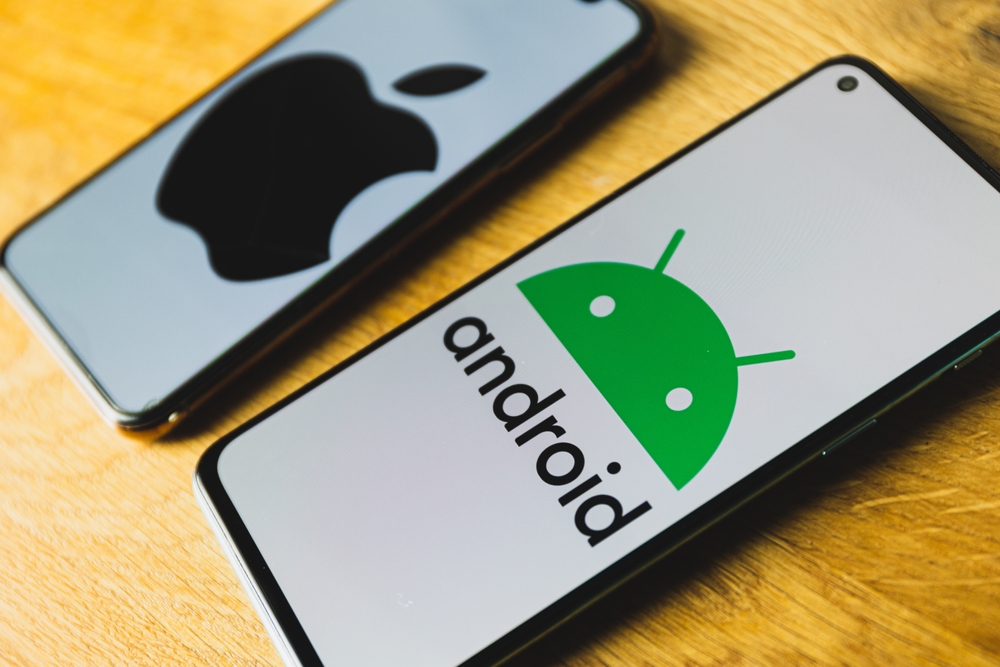
Master the Art of Mobile App Marketing: Expert Tips & Tricks for Effective Promotion

With the ever-growing popularity of smartphones and the ease of access they provide, mobile apps have become an integral part of our daily lives. Whether it's for entertainment, productivity, or staying connected with others, mobile apps have transformed the way we interact with our devices. However, creating a great mobile app is only half the battle. To truly succeed, developers and marketers need to master the art of mobile app marketing. In this article, we will explore some expert tips and tricks to effectively promote your mobile Android or iOS app .
1. Define Your Target Audience
Before diving into any marketing efforts, it is crucial to have a clear understanding of your target audience. What are their demographics? What are their interests and preferences? Understanding your audience will help you tailor your marketing strategies and messages to effectively reach and engage them. Conduct market research, analyze competitors' apps, and gather feedback from early users to develop a comprehensive user persona.
2. Optimize Your App Store Presence
The app stores, such as Google Play Store and Apple App Store, are the go-to destination for users looking for new apps. To stand out from the crowd, you need to optimize your app's presence in the app stores. Start by conducting keyword research to identify relevant and high-volume keywords that users search for. Incorporate these keywords into your app title, description, and other metadata to improve discoverability.
In addition, invest in eye-catching and professional app screenshots and videos. Visuals play a crucial role in attracting users' attention and conveying the value of your app. A visually appealing app icon is also essential for creating a positive first impression.
3. Leverage Social Media Channels
Social media platforms provide fantastic opportunities for promoting your mobile app . Create accounts on platforms that align with your target audience, such as Facebook, Instagram, Twitter, or LinkedIn. Share engaging content related to your app, such as tutorials, behind-the-scenes development updates, or user success stories.
Utilize social media advertising to reach a wider audience. Platforms like Facebook and Instagram offer highly targeted advertising options based on users' demographics, interests, and behavior. Experiment with different ad formats, such as image ads, video ads, or carousel ads, to find what works best for your app.
4. Implement App Store Optimization (ASO)
App Store Optimization (ASO) is the process of optimizing your app's visibility in the app stores' organic search results. Similar to search engine optimization (SEO) for websites, ASO aims to increase the visibility and download conversion rate of your app.
Focus on optimizing your app's title, description, and keyword metadata. Use relevant keywords naturally throughout your app's description to improve its search relevance. Regularly monitor and analyze your app's performance in the app stores, and experiment with different changes to continually improve your ASO strategy.
5. Implement Influencer Marketing
Influencer marketing has become a powerful tool for promoting mobile Google Play or App Store app s. Identify influencers within your niche who have a significant following and high engagement rates. Reach out to these influencers and offer them a free download of your app in exchange for an honest review or a promotional post.
The key to successful influencer marketing is to find influencers whose audience aligns with your target audience. A genuine endorsement from a trusted influencer can significantly enhance your app's credibility and attract new users.
6. Encourage User Reviews and Ratings
User reviews and ratings play a crucial role in convincing potential users to download your app. Positive reviews and high ratings help build trust and credibility, while negative reviews can deter users from installing your app.
Encourage your existing users to leave reviews and ratings by implementing in-app prompts or sending follow-up emails. Ensure that the review process is seamless and user-friendly to maximize participation. Monitor and respond to user reviews to show that you value your users' feedback and are committed to improving their experience.
7. Measure, Analyze, and Iterate
Effective mobile iOS or Android app marketing requires constant monitoring and analysis of key performance indicators (KPIs). Set specific goals, such as the number of downloads, user engagement levels, or in-app purchases, and regularly track your progress towards these goals. Utilize analytics tools, such as Google Analytics or Firebase, to gain valuable insights into users' behavior and app performance.
Based on the collected data, iterate and optimize your marketing strategies. Identify what works well and double down on those efforts. Simultaneously, experiment with new ideas and approaches to continually improve your app's visibility and user acquisition.
Frequently Asked Questions
Q: How long does it take to see results from mobile app marketing?
A: The timeline for seeing results may vary depending on various factors, including your app's niche, target audience, marketing budget, and the effectiveness of your strategies. It's important to approach mobile app marketing as a long-term effort that requires continuous optimization and adaptation. Patience and persistence are key.
Q: Should I focus on paid advertising or organic marketing for my mobile app?
A: Both paid advertising and organic marketing have their advantages. Paid advertising, such as social media ads or search engine marketing, can deliver quicker results and help reach a wider audience. On the other hand, organic marketing efforts, such as ASO and influencer marketing, can provide more sustainable and cost-effective user acquisition over the long term. A balanced approach that combines both strategies often yields the best results.
Q: Is it necessary to update my mobile app regularly for marketing purposes?
A: Yes, regular updates are crucial for maintaining user engagement and attracting new users. App updates not only introduce new features and improvements but also demonstrate your commitment to addressing user feedback. Regular updates also provide opportunities for marketing communications, such as announcing new features or sharing user success stories.
Q: Are there any alternative app stores I should consider for promoting my mobile app?
A: While the Google Play Store and Apple App Store dominate the mobile app market, several alternative app stores cater to niche audiences or specific regions. Examples include Amazon Appstore, Samsung Galaxy Store, and Xiaomi App Store. Research and assess the relevance of these alternative stores to your target audience before considering additional distribution channels.
Q: How can I encourage users to share my mobile app with others?
A: Implement referral programs or incentives to encourage user referrals. Offer benefits, such as in-app rewards or exclusive features, to users who successfully refer others to download and use your app. Additionally, make it easy for users to share your app through social media platforms or by providing pre-written messages they can easily send to their contacts.
In conclusion, mastering the art of mobile app marketing is essential to ensure the success and widespread adoption of your app. By defining your target audience, optimizing your app store presence, leveraging social media channels, implementing ASO, utilizing influencer marketing, encouraging user reviews, and consistently measuring and analyzing your performance, you can effectively promote your mobile app and reach a larger user base. Remember, mobile App Store or Google Play app marketing is an ongoing process, so keep experimenting, learning, and adapting to stay ahead of the competition.
Other useful resources
- https://www.appguru24.com/services/
- https://en.wikipedia.org/wiki/App_store_optimization
- https://www.appguru24.com/topics/ios-and-android-mobile-app-promotion-tips/
- https://en.wikipedia.org/wiki/App_store